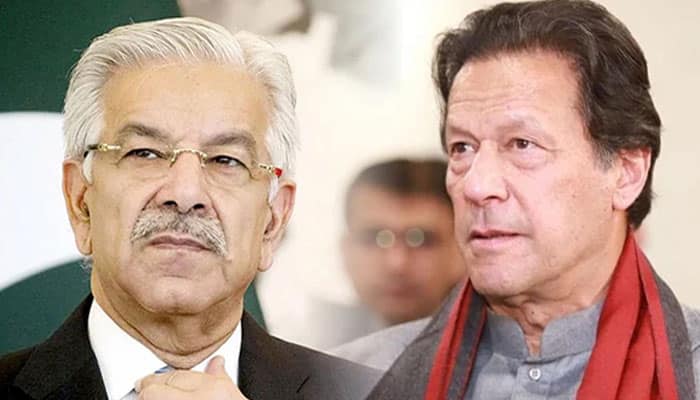Defense Minister Khawaja Asif has voiced strong concerns on social media regarding Pakistan’s historical relationship with the United States, the decisions of past leaders, and the ongoing issue of Imran Khan’s potential extradition. As the United States ushers in a new leadership, Asif raised questions about Pakistan’s stance on U.S. demands, particularly the possible release of Imran Khan and his handover to American authorities.
Asif lamented the perceived lack of resistance to U.S. influence, stating that Pakistan “cannot dare to refuse the call” from Washington, D.C., and drawing attention to the historical pattern of compliance to U.S. pressures. He suggested that Pakistan has too often bowed to external demands, with significant consequences for the country’s sovereignty and long-term interests.
The Minister contrasted the foreign policy decisions of former leaders, notably former Prime Minister Nawaz Sharif and former President Pervez Musharraf. He highlighted Sharif’s principled rejection of a $5 billion offer from the U.S. during his tenure, resisting Washington’s pressures in favor of safeguarding Pakistan’s national interests. This, Asif argued, was a moment where Pakistan demonstrated the strength of its sovereignty.
In stark contrast, Asif criticized Musharraf’s approach, particularly following the 9/11 attacks, when Pakistan became a key ally in the U.S.-led war on terror. He pointed out that Musharraf’s swift compliance with U.S. requests led to Pakistan’s prolonged involvement in the conflict, which, according to Asif, significantly weakened the country’s strategic autonomy and entangled it in a costly war with little to show for it.
While acknowledging the end of active conflict in Afghanistan, Asif noted that Pakistan continues to bear the consequences of these past decisions, particularly in the form of ongoing terrorism and instability within its borders.
In light of these historical lessons, Asif urged the current leadership to exercise caution and carefully weigh the long-term implications of any decisions that might compromise Pakistan’s sovereignty or security. He emphasized the need for a balanced approach that safeguards the nation’s interests while managing its international relationships.










